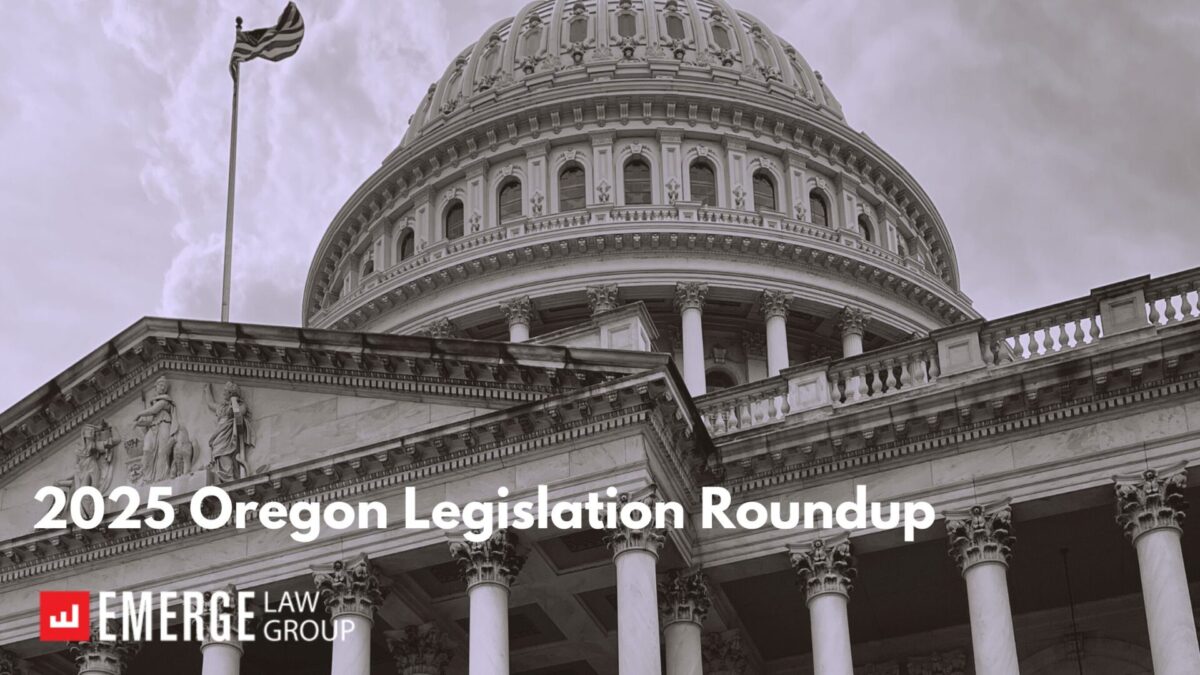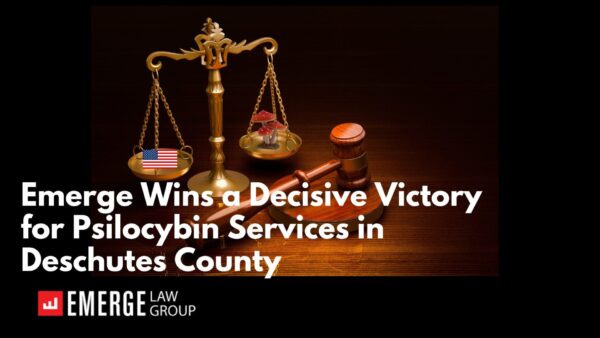Oregon’s 2025 legislative session, which comes to a close next week, saw the passage and rejection of multiple cannabis-related bills. See our quick and dirty rundown:
- SB162
- Potentially increased OLCC license period – The OLCC may establish an up to five-year license term (up from the current one-year license) for production, processing, retail, wholesale, and laboratory licenses. If OLCC promulgates rules to increase the one-year license period, licensees could save on time and fees.
- A preschool buffer “grandfather clause” – Designed to fix the issue that arose when the legislature passed a law prohibiting an OLCC-licensed retailer from locating within 1000 feet of certain public pre-K and kindergarten facilities, which included situations where OLCC discovered the existence of a buffered school after OLCC already issued the retailer license. Now, a retailer licensed before January 1, 2025, may remain at their location if OLCC discovers the existence of an applicable preschool/kindergarten within 1000 feet of the retailer.
- SB558
- This bill significantly loosens cannabis sample-sharing restrictions at industry events and producer transfers overall.
- Trade show transfers – Producer, processor, wholesaler, and retail licensees may transfer cannabis trade samples to other licensees or worker permit holders at OLCC-registered trade shows or temporary events. At these events, licensees may also transfer cannabis items to and from other licensees, including wholesaler licensees transferring or selling cannabis items directly to licensed retailers.
- Cannabis items sold or transferred at wholesale to other licensees need not be returned to licensed premises after the event.
- Expanded producer transfer privileges – Producer licensees may transfer usable marijuana to another producer.
- Producers are now permitted to provide their employees with immature plant and seed samples up to existing personal possession limits.
- Increase in trade sample limits – The allowable quantity of trade samples for all licensees is now based on harvest lots and production batches rather than certain fixed amounts per monthly period.
- Trade show transfers – Producer, processor, wholesaler, and retail licensees may transfer cannabis trade samples to other licensees or worker permit holders at OLCC-registered trade shows or temporary events. At these events, licensees may also transfer cannabis items to and from other licensees, including wholesaler licensees transferring or selling cannabis items directly to licensed retailers.
- This bill significantly loosens cannabis sample-sharing restrictions at industry events and producer transfers overall.
- HB3724
- Advertisement and packaging language – The prohibition on ads and packaging that is merely “appealing to minors” will change to more specifically prohibiting ads and packaging “likely to cause minors to unlawfully possess or consume” marijuana items.
- The new language applies to the advertising, labeling, and packaging of cannabis products and usable marijuana (including pre-rolls).
- The OLCC must specify objective criteria for evaluating marketing materials deemed risky to minors. The proponents of the bill intended to increase the allowable artwork on labels and advertisements and bring restrictions more in line with alcohol labeling.
- Advertisement and packaging language – The prohibition on ads and packaging that is merely “appealing to minors” will change to more specifically prohibiting ads and packaging “likely to cause minors to unlawfully possess or consume” marijuana items.
Disappointingly, SB557, a proposal that would have required at least one OLCC commissioner to be a licensed cannabis business owner did not pass.
Lastly, we’re informed that the State has filed an appeal of a federal court’s decision effectively repealing Measure 119, which we discussed in a previous post. For now, OLCC continues to renew and issue licenses without the labor peace agreement requirement, but that may change if the State successfully appeals. We’ll continue to monitor this issue and provide updates.
Emerge’s regulatory attorneys are happy to answer any questions you may have about these legislative changes and any other regulatory or compliance issues.



